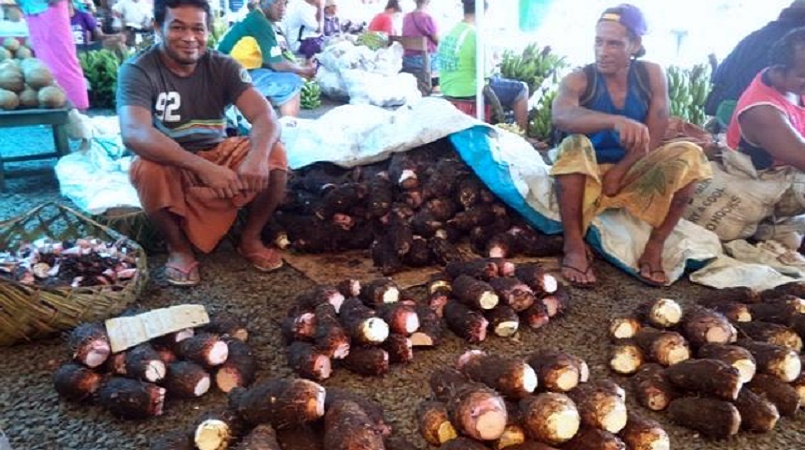
Cook Islands Bio-security officers intercepted a haul of banned taro from Samoa on board the ship Lady Naomi on Monday.
Bio-security director Ngatoko Ta Ngatoko says taro from Samoa poses a huge risk for the Cook Islands’ taro crops, and to find it on the ship was ‘very alarming’.
He says Samoan taro could introduce leaf blight diseases to the Cook Islands endangering a staple crop which is grown throughout the country.
The disease is considered one of the worst in the world for taro, as it attacks the entire taro family including taro, kape and taro tarua.
It infests the plants’ leaves, including the petiole or stalk, and corms, causing up to 90 to 100 per cent death to the leaves and eventually killing the plant.
In 1993, all taro in Samoa and American Samoa was infested by this disease pathogen called Phytopthora colocaesiae.
The fungal pathogen wiped out both countries’ taro crops and seriously affected their food security for decades.
Ngatoko says there is no immediate effective way to control the disease apart from carrying out many years of taro breeding to encourage resistance.
“We in the Cook Islands do not want this disease to affect our crops.
“For this reason, we have strict measures for protection from plants and plant products entering our borders, especially products from very high risks countries like Samoa and Tahiti.”
Ngatoko says the taro was discovered by bio-security staff during a border security clearance session. They found taro corms and taro leaves used for cushioning the corms at the base of a kikau basket.
He says when they confiscated the material, staff encountered ‘issues’ with people on board the ship and an argument ensued.
“There was an argument, but that’s just tough. We don’t want our country infected with this disease,” Ngatoko says.
“The products were confiscated and burned as required to rid the risks to our national biosecurity.”
